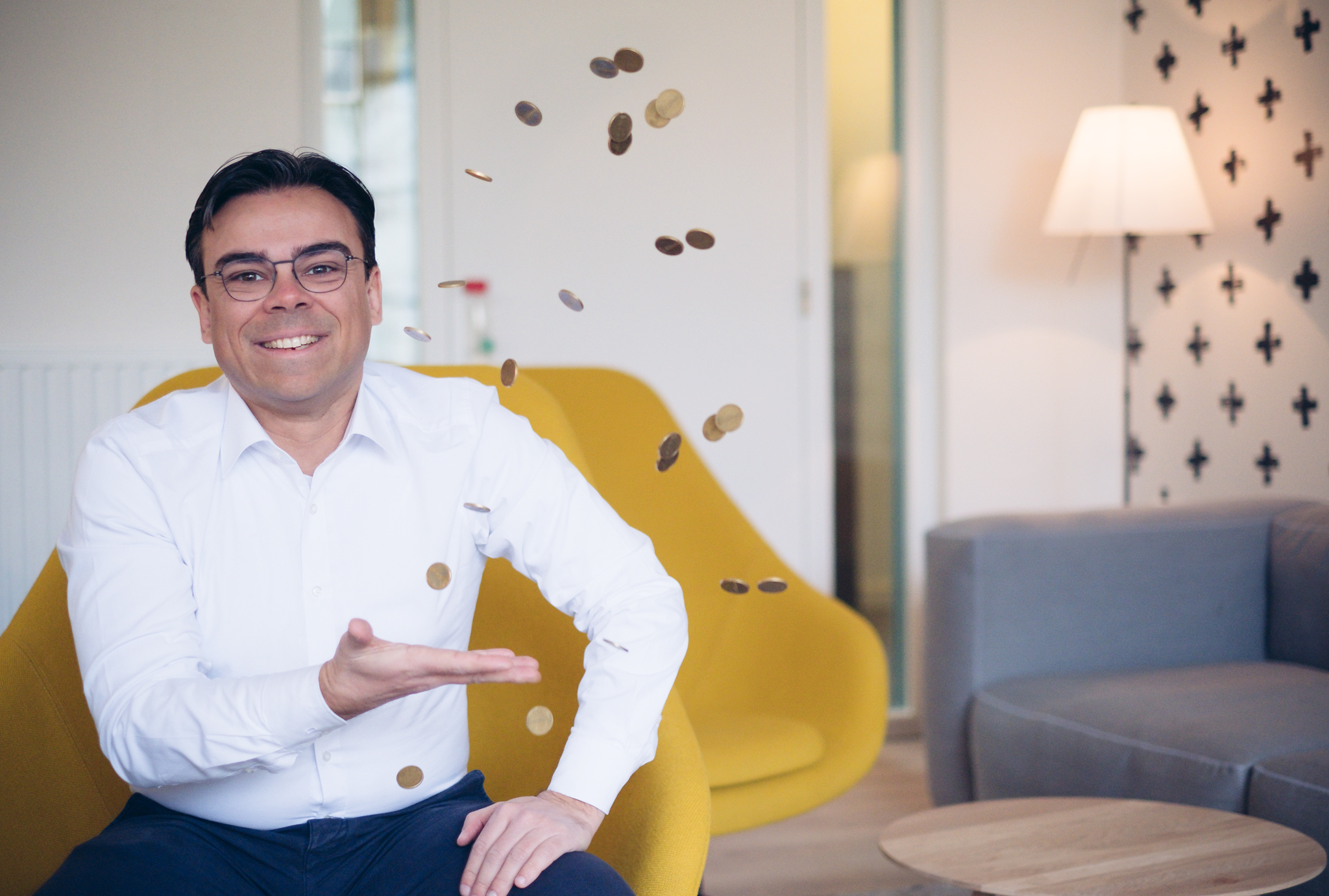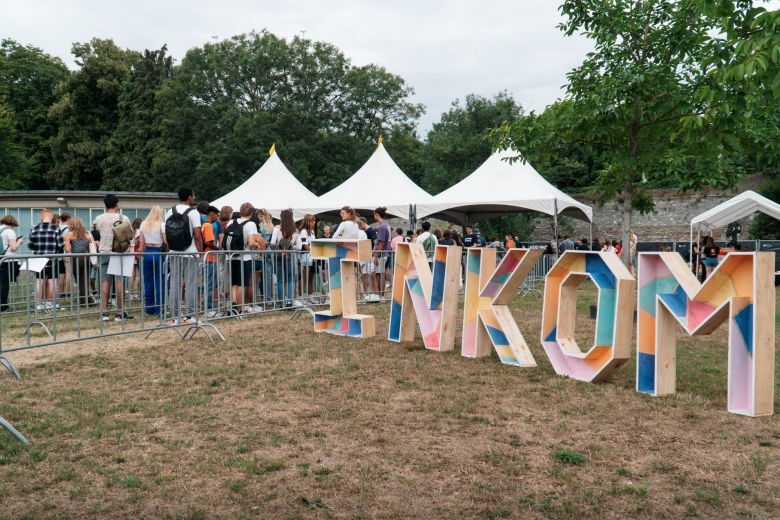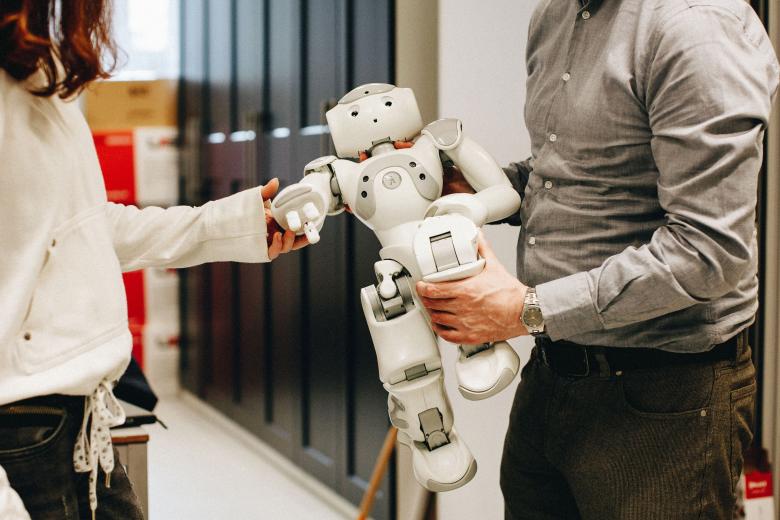Verandert bitcoin onze wereld?
Deze tekst is alleen beschikbaar in het Engels
The Netherlands’ annual Week van Het Geld (Week of Money) is inspired by the very worthy (and very Dutch) conviction that it’s never too soon to teach children about money. But what new financial lessons do the rest of us – undergraduates, academics, citizens, politicians - need to learn? Long before today’s school kids become adults, could the innovations of fintech and distributed-ledger blockchain transform our world for the better? Or is the market in cryptocurrency a “global speculative mania”, as the head of the Bank of England argued, and bitcoin a “noxious poison”, in the words of a billionaire investor? Should the Dutch, in particular, spot “the tulip mania of our era” in Ethereum, Ripple… and Bananacoin?
The Golden Age reference comes courtesy of Paulo Rodrigues, assistant professor of finance at the School of Business and Economics, who started his working life as a bored teenager in a German bank, “the guy at the counter talking to people who wanted to open a chequing or savings account”. He went on to study theoretical econometrics and financial engineering, carried out research on modelling stock returns, and has lately turned his attention to broader economic questions.
He’s also SBE’s designated crypto-bitcoin-fintech go-to guy. Between fielding half-serious questions from colleagues about whether virtual cash could make them genuinely rich, he’s working on incorporating these developments in the faculty’s curriculum.

Although he doesn’t own any bitcoin himself – “I don’t think it’s a good investment, and I don’t even believe it’s an investment that should belong in any portfolio” – Rodrigues is keen to discuss this brave new world in his teaching. “There is a lot of demand by students for knowledge about this landscape. When companies such as Chainium are telling us, ‘We will change the way companies finance themselves’, if a student sitting in a corporate finance class is thinking, ‘What he is teaching is outdated; I don’t need to know that, because blockchain will change everything’, it’s up to me to challenge that. A lot of these issues are traditional finance-related problems, and we can improve the solutions if we educate students in what these technologies do and how we can use them.”
Are those who fall for tales of blockchain-built billions ill-informed…or greedy? Rodrigues laughs. “I’d say both! The value of bitcoin went from almost nothing to $20,000 in one year; then it fell to $6,000, and now we’re at $9,000. Why do you think people go to the casino? Because they don’t understand what they’re doing…or because they just want to get rich?”
So what else do we need to know?
“First, the system [of bitcoin mining] as it’s currently set up, using proof of work, is not sustainable. It’s basically an environmental catastrophe. Second, blockchain can handle about seven transactions a second, whereas Visa handles thousands of transactions per second. Currently bitcoin cannot be a widely used payment system, because it doesn’t have scalability.
“Third: currency used to be backed by gold, which has an upper limit, because we have only so much gold on the planet. The way bitcoin is set up, there will only be 21 million bitcoins mined. I’m no economic historian, but from what I remember of Macroeconomics 101, one reason the Great Recession was so severe was because monetary policy was inadequate to react to economic conditions. When bitcoin was set up, one argument was ‘The central banks are just going to print money, so I’ll put my money in bitcoin’. But everything that a central bank does has some economic theory behind it, and not all of it is evil. I don’t think going to a deflationary currency environment – and bitcoin will be deflationary - is good.”
Rodrigues warns, “Bitcoin is saved on your hard drive. If you lose the password, or your hard drive crashes and you have no backup, your bitcoins are gone. Who gets them? Nobody. Over time, the amount of useable bitcoin will get smaller.” What’s more, he adds, “a high percentage of bitcoin exchanges have been hacked, and then that money was gone”.
With traditional financial instruments, he says, “I’m outsourcing responsibility to a bank. If the bank loses all my records, right, then I’m broke. But I’m trusting that will not happen. What pure proponents of cryptocurrency systems are saying is, ‘I don’t trust anybody but myself’.”
Is cryptocurrency an ultra-libertarian idea?
“That’s a good question. Bitcoin supposes you don’t need to trust in any governmental entity, and the only manager of yourself is you. I think this is a bug, but a lot of people think it’s a feature. But take me as an example: although it’s technically open source, I don’t understand the computer code on which the whole thing is set up. Couldn’t you say that, for me, the programmer is an intermediary?”
What, in Rodrigues’ view, are the most noteworthy fintech developments?
“The most impact will be in developing countries; in Africa, where more than half of the population have no access to banking, 80% have access to a mobile phone. If you don’t have access to bank transfer facilities and all of a sudden you do, that’s a big improvement”. Blockchain could also be used in smart power grid systems, and in land registries, “although I have a caveat, because a land registry has to be backed up by a government, and if a dictator gets in…
“But my work is mostly on asset pricing, so for me the most interesting fintech development is automated investment vehicles – ‘robo-advisors’ – that make a larger menu of assets available to small investors. You want to minimise transaction costs, because if you look into the academic literature, you don’t really find proof that [traditional human] financial advisers are worth their money…although investment managers will obviously greatly dispute what I’m telling you.”
But when using a robo-advisor, “would it be important for there to be a bank in the background? Absolutely.”
Looking to the future, Rodrigues says, “I think economic and finance problems will remain the same; we’ll just have different ways to solve them. But we have to think about what we are trying to do; if you have a hammer, everything looks like a nail. I don’t believe these changes will be pareto optimal; there will be winners and losers. But it’s the job of society, in the form of governments, to manage these changes. I’m a little sceptical about how they will manage it - but that brings us to politics, not economics.”
Will we still be talking about bitcoin when today’s first-year undergraduates finish their master’s?
“I thought we’d have stopped talking about it two years ago,” Rodrigues laughs. “But they’ve even created a futures contract, traded on the Chicago Mercantile Exchange. They wouldn’t create a product like that if they didn’t believe it would stick around. Will we still talk about it in five years? Probably. But then, we’re still talking about the tulips!”
Lees ook
-
INKOM 2024
Van maandag 19 tot en met donderdag 22 augustus zullen de studenten met elkaar en met de stad Maastricht kennismaken. Een stad waarin je nieuwe mensen gaat ontmoeten en je (opnieuw) je weg moet gaan vinden.

-
Wonen en werken bij PITground in Sittard
Wonen in Sittard en studeren in Maastricht, Eindhoven, of zelfs Tilburg of Leiden. Een paar jaar geleden was dit nog moeilijk voor te stellen, tegenwoordig komt het steeds vaker voor. Soms uit noodzaak, maar vaak ook als bewuste keuze. De opkomst van meer creatieve woonplekken buiten de traditionele...
-
Vliegende start bachelor Computer Science
Met de dit jaar gestarte bachelor Computer Science versterkt de Universiteit Maastricht zijn positie verder als bèta-universiteit. De belangstelling voor de nieuwe opleiding was boven alle verwachting: zo’n 300 studenten uit alle hoeken van de wereld gingen in september aan de slag. “De...
